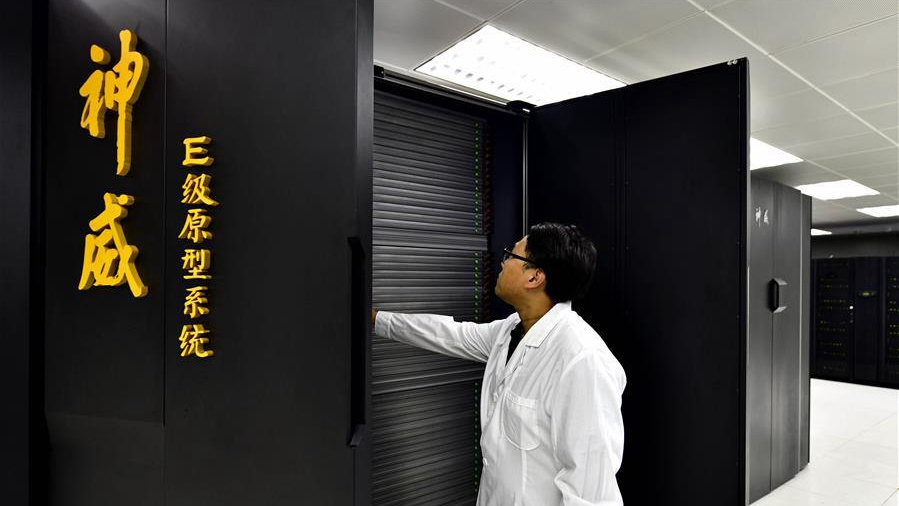
Tech & Sci
14:46, 06-Aug-2018
China launches next-generation supercomputer prototype
Updated
13:47, 09-Aug-2018
By Gao Yun

China launched a prototype exascale supercomputer in its National Supercomputer Center in Jinan, capital of China's eastern Shandong Province on Sunday, paving the way for the development of the next-generation supercomputer.
An exascale computer is capable of conducting a billion billion, or a quintillion, calculations per second.
The Sunway exascale computer prototype was jointly developed by the National Research Center of Parallel Computer Engineering and Technology (NRCPC), the National Supercomputer Center in Jinan and the Pilot National Laboratory for Marine Science and Technology (Qingdao) for over two years. The key components, including processors, network chipset and storage and management system, are domestically produced.
The computing power of the prototype is triple that of Sunway BlueLight, China’s first petascale supercomputer with solely homegrown CPU and system software, but the volume is only one-ninth of the latter with a decrease of 75 percent in power consumption.

The storage device of the Sunway exascale computer prototype. /Xinhua Photo
The storage device of the Sunway exascale computer prototype. /Xinhua Photo
Yang Meihong, director of the National Supercomputer Center in Jinan, likened it to a concept car that can run on road. “The successful development of the prototype made a comprehensive verification of the development plan and technical design of exascale computer and paved way for the latter.”
The new-generation supercomputers will provide strong support to scientific research in more fields, said Pan Jingshan, deputy director of the National Supercomputer Center in Jinan.
The prototype has completed 35 major computing tasks concerning 12 fields including global climate change, marine numerical simulation, biomedical simulation, big data processing and brain-like intelligence, which has a broad future application.
"We expect to build the exascale computer in the second half of 2020 or the first half of 2021," said Yang.
(With input from Xinhua News Agency)

SITEMAP
Copyright © 2018 CGTN. Beijing ICP prepared NO.16065310-3
Copyright © 2018 CGTN. Beijing ICP prepared NO.16065310-3